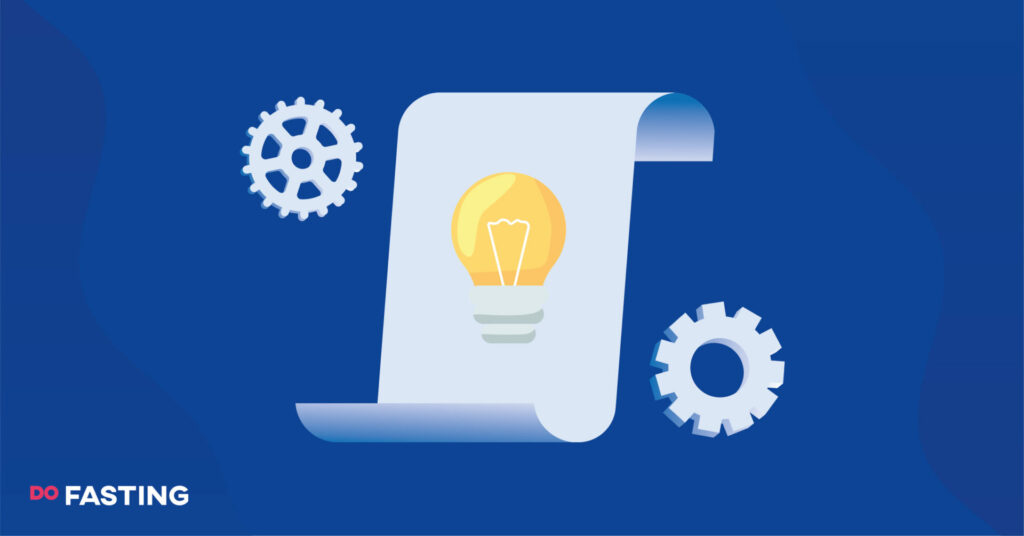Contents
What Is a Low Carb Diet?
If you take the tenets of a keto diet and apply the low-carb attributes to what you can consume during the eating window of intermittent fasting, you can amplify the number of fat cells burned and how long you remain in ketosis.
By not having a high carb intake outside of periods of fasting, your metabolism will be primed to burn fat instead of glucose, and the levels of blood sugar within your system are much lower with low carb diets.
And for some dieters who want to lose weight and burn body fat for good, this is particularly true. When it comes to blending a ketogenic diet with low carb intermittent fasting for weight loss success, thanks to an enhanced metabolic switch.
The scientific evidence behind a low-carb diet helping weight loss includes boosting the metabolic process and the production of ketones within the liver. These ketones target body fat and allow blood glucose levels to lower and be safely flushed out of your system.
Instead of refueling yourself with high carb foods outside of fasting periods that would just contribute to blood sugar levels you need to burn off, eat reduced carb foods from the ketogenic diet for faster weight loss.
Overall, following a low-carb eating plan outside of extended fasting also lowers triglycerides, which are responsible for redistributing fat cells through the bloodstream and contribute to insulin resistance and fat stores.
So, let’s take a look at how combining low-carb eating plans with intermittent fasting can guide you to drop weight and improve health benefits, based on further research.
Take a
1-minute quiz
and discover how much weight you can lose with DoFasting!

What Are the Benefits of Doing Low Carb During the Fasting Period?
Some of the best weight loss results you can see during intermittent fasting occur when paired with a low-carb diet.
For example, you could combine the keto diet with 16/8 fasting to help kickstart your metabolic function for maximum fat burning, which is a fairly easy plan to follow.
But what are the benefits of combining a low carb or keto diet with your intermittent fasting plan? Read on to find out the top four advantages and the science behind them.
Intermittent Fasting and a Low-carb Diet May Help Your Body Reach Ketosis Faster
Low-carb practitioners might notice the intermittent fasting stage of ketosis arrives quicker when paired with reduced carbohydrates.
Because your body breaks down fat cells during ketosis, it’s one of the best methods to lose weight and fat permanently. And, combining a low-carb keto diet with intermittent fasting is a way to achieve ketosis even faster.
In particular, this is because your body retains less glucose from carbs for energy, and as such, must burn fat instead— entering ketosis and boosting your metabolism with the production of ketones.
Expect a Greater Weight Loss When Combining a Low Carb Diet and Fasting
Many health-conscious people turn to a low-carb intermittent fasting plan to help with weight loss, but does it really work?
The answer is, yes! The ketones induced by a low-carb diet and ketosis not only burn fat for better energy levels, but actually remove those fat molecules from being stored around the body.
So, instead of just losing water weight and then hitting a weight loss plateau, fueling with a low carb eating pattern outside of fasting hours promotes physical fat loss. This means you can drop more pounds with intermittent fasting and keto than you could on a crash diet.
Additionally, studies under medical supervision have shown that a low carbohydrate diet works to reduce your appetite and diminish hunger cravings.
Due to the complex and balanced meals included in eating a low-carb diet, people tend to feel fuller for longer, instead of experiencing blood sugar spikes and dives throughout the day.
It not only makes it easier for you to fast for longer stretches but also to avoid eating extraneous meals on alternate day fasting-free periods.
Take a
1-minute quiz
and discover how much weight you can lose with DoFasting!

You Can Expect Lower Blood Sugar Levels
This health benefit is fairly straightforward— by eating fewer carbs that the body turns into sugar, your insulin levels are lowered.
Plus, by reducing insulin levels, this fat-storing hormone is unable to contribute to other health issues such as diabetes and heart disease. And though insulin is one of the building blocks of a healthy body, blood sugar levels that rise too high are incredibly dangerous.
Excessive amounts of blood sugar are stored within the liver as glycogen, and this can interrupt the healthy processes in your liver and pancreas that are responsible for the production of healthy insulin levels.
By giving your body something else to burn as fuel— body fat— you not only lose weight but also allow your system to safely flush out the extra glycogen, meaning that low-carb fasting is good for reducing blood sugar.
Intermittent Fasting and a Low Carb Diet Combo May Help Manage Insulin Resistance and Diabetes
Lower blood sugar levels are not the only benefit you can expect when it comes to insulin and the role a low-carb intermittent fasting plan plays in it.
Studies have shown that fasting periods are very effective in lowering not only insulin levels but also reducing leptin (a hunger hormone) and increasing adiponectin.
This is particularly key, as adiponectin is the protein hormone responsible for regulating glucose and preventing insulin resistance.
So, by pairing low-carb diets that do not drastically raise blood sugar levels with intermittent fasting that is proven to increase the hormone that manages insulin, you are effectively turning your body away from the risk of diabetes entirely.
And if you already suffer from blood sugar issues or diabetes, this path might still be the right choice for you. A case study involving a woman with diabetes showed that she was able to discontinue all insulin medications after a period of intermittent fasting and low carb consumption.
Between the fat-burning capacity of intermittent fasting and low carb eating, this study proved such a diet plan was essential to reversing insulin resistance and developing health issues stemming from it.
What Foods You Can Consume When Doing Low Carb During Fasting?
In general, following a low-carb intermittent fasting plan helps you achieve a healthier lifestyle. And though only some foods are permitted in this plan, based on their carbohydrate scores, you can still experience a variety of meals and flavors.
As you will see in the following list of acceptable foods, the choices include high-fat products, lean meat, dairy goods, and non-starchy fibrous vegetables.
Eating this type of balanced plan allows you to restrict the number of carbohydrates in the food, as well as allowing your metabolism to become accustomed to burning fat instead of carbs and sugar. You will feel healthier, more energetic, and lighter by following such a diet, keeping your carbs below about 20 to 57 grams per day.
Foods You Can Have
On non-fasting days, it’s important to keep your food choices aligned with a few carbs and more complex items. The following foods are all excellent choices to keep your metabolism optimized and ready to jump back into ketosis:
- Fibrous Vegetables— Including asparagus broccoli, cabbage, cauliflower, cucumber, eggplant, kale, leafy greens, lettuce, mushrooms, olives, onions, peppers, spinach, tomatoes, and zucchini.
- Fish and Seafood— Like herring, mackerel, salmon, sardines, sea bream, prawns, and shrimp.
- Fruits— For example, berries, citrus fruits, and avocado.
- Lean Meat— Such as beef, chicken, lamb, and pork.
- Natural and Healthy Fats— Including butter, cream, ghee, high-fat cheeses, whole milk, yogurt, coconut oil, olive oil, eggs, and fatty nuts.
Good beverage options for this diet include plain water, water with lemon juice, black tea, and black coffee without sugar added.
Foods You Should Avoid During Low Carb Diet Followed by Intermittent Fasting
Similarly, there are certain foods to avoid outside of fasting. This is because high-carb food choices will make your blood sugar levels rise again, effectively mitigating the good work your metabolism already did in turning fat into fuel.
Plus, if your food pattern yo-yos between fasting with no carbohydrates and then consuming all the starchy and sugary products you’ve been craving, your entire system will find it much harder to regulate and produce the right hormones.
This includes any food that will turn into glucose thanks to your body’s processing, such as:
- Starchy Products— Including beans, legumes, lentils, potatoes, and yams.
- Sugary Foods and Drinks— Like beer, candy, chocolate, high-sugar fruits, ice cream, juice, and sodas.
- Wheat and Flour Products— Such as baked goods, bread, pastries, refined cereal grains.
What Are the Side Effects of Doing Low Carb With Intermittent Fasting?
Not everyone goes on to experience adverse reactions, but intermittent fasting with few carbs in your diet can lead to some side effects.
However, these effects are temporary and not critical in nature, often passing within a few days after you get used to the new eating pattern and what your diet is composed of, so keep that in mind.
That being said, people have experienced some of the following symptoms as fasting drawbacks when combining intermittent fasting with fewer carbohydrates in their daily routines:
- Bad breath.
- Constipation.
- Diarrhea.
- Fatigue.
- Hair loss.
- Headache.
- Irritability.
- Trouble sleeping or falling asleep.
Is Intermittent Fasting and a Low Carb Diet for Everyone?
Intermittent fasting and low-carb diets are generally safe to pursue and can give you some great results and health benefits fairly quickly.
However, if you fall into some categories of health that are considered more vulnerable, it is not wise to combine these diet plans without medical advice, or under the supervision of your healthcare provider.
This includes persons who identify with any of the following states:
- A history of eating disorders or a current eating disorder.
- Below the age of 18.
- Chronic diseases.
- Insomniacs.
- Pre-existing health conditions.
- Pregnant or breastfeeding women.
- Suffering from chronic conditions such as Alzheimer’s disease.
- Taking certain prescription medications.
- Those at a higher risk of heart disease.
Take a
1-minute quiz
and discover how much weight you can lose with DoFasting!

Conclusion
When it comes to optimizing your weight loss and making intermittent fasting work for you, why not incorporate another very effective diet plan?
If you start eating meals that are low in carbohydrates outside of fasting periods, it is a great way to speed up fat burning, as well as lower insulin levels, prevent heart disease, and get even more energy.
As long as you select the right foods when you resume eating after a fast, your metabolism will remain primed for ketosis and burn off the excess fat accumulated in your body to achieve your weight goals at last!
See how DoFasting will improve your life
Find out what works for you with this 60-sec quiz approved by our experts and get your personal revolutionary fasting assistant.
Start the Quiz














